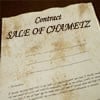So you've decided to spend Passover away from home. You may be traveling to family, following the time-honored tradition for relatives to gather for the Passover seders, you might be embracing the recent trend of spending Passover in a hotel or resort, or perhaps business concerns are the reason for this trip. Either way, the following tips and halachic guidelines will help you be at home with Passover even while you are on foreign turf.
Discussed below are Passover-specific topics. For general travel issues, see the articles in our knowledgebase under Travel & Transportation.
Get Your Jewish Bearings
It's wise to have the contact information of the local Chabad centerWhether or not you'll be staying in an environment with a Jewish/religious infrastructure – such as a hotel resort complete with seders and prayer services, or religious Uncle Benny's house – it would be wise to have the contact information of the local Chabad center (click here for our global centers directory). Depending on your needs, you might want to join them at a communal seder (click here for an international communal seder listing), find out prayer service times, or simply have the number at hand in case a Jewish need arrives ("I just must have a kosher for Passover chocolate bar—where can I get one?" "Where's the local mikvah?").
Do Your Research
It is vital to ensure that the foods you will be eating during the course of Passover are 100% kosher for Passover, certified so by a reliable rabbinical agency.
If you are staying at family or friends, speak to them in advance and be clear about your standards—a classic case of "an ounce of prevention is worth a pound of cure." If you will be spending the holiday in a hotel, find out which rabbi or kosher supervision agency is providing kosher certification. If you are uncertain whether the rabbi or agency is reliable, have your local rabbi make inquiries for you.
Matzah
Your host or caterer will probably provide Passover matzah. The optimal way, however, to fulfill the mitzvah at the seders is with special handmade shmurah matzah. If they won't be serving this matzah at your seder, bring some along from home. Click here to order handmade shmurah matzah on-line.
Selling Chametz
The location of the chametz's owner determines when the prohibition begins and endsWhen traveling, the sale of chametz contract should include your chametz back at home as well as any chametz you might have with you at your Passover destination. If you're traveling within your local time zone — and not going too far east or west within that zone — the sale of chametz presents no issue whatsoever. You can arrange the sale with your local rabbi, or with a rabbi at your destination, or on-line.
If, however, your travels will take you out of your local time zone, selling your chametz though your local rabbi presents a problem: The prohibition to own chametz begins with the onset of the fifth "seasonal hour" on the day before Passover, and lasts until nightfall of the last day of Passover. In this regard, the physical location of the chametz is irrelevant—it is the location of the owner that determines when the prohibition begins and ends.
As such, if your local rabbi sells your chametz, he will either sell it too late (if you are traveling eastward), or buy it back too early (if you are going westward). The solution is to sell your chametz through a rabbi located where you will be on Passover (or you can do it on-line, where we arrange for rabbis in different locations around the globe to sell the chametz for their time zones).
If there is no rabbi at your destination, consult with your local rabbi. He may be able to make special arrangements for you.
On a similar note, halachic times vary by location. Visit our halachic times page for local halachic times for wherever your Passover plans land you.
Search for Chametz
If you are a paying guest at your destination, e.g. you are staying in a hotel, then you are required to perform the traditional search for chametz in the room(s) that you lease. If you are a non-paying guest, then you are covered by the homeowner's search. If you wish, however, you can "lease" the room where you will stay, by giving the owner a symbolic dollar or two, and as its owner, you can now do the search in that room. This leasing must be done before sunset of the night of the search.
With regards to the chametz back at your home:
A paying guest is required to search for chametz in the room(s) that he leasesIf you will be returning to your home before Passover's end, then you must clean your home and make it chametz-free, and do the search for chametz the night before you leave your home. If this is before the conventional time for the search – the night before Passover, or, if the first day of Passover falls on Sunday, the Thursday night beforehand – the search is conducted without reciting the blessing.
If you will be away from your home for all of Passover, you presumably won't want to do Passover cleaning – in all probability, avoiding that chore is one of the reasons why you are leaving in the first place... – instead, you will sell all your chametz through your rabbi, and do not need to conduct the chametz search in your home. You will suffice with the search you will conduct in your Passover accommodations.
The Israel/Diaspora Divide
In the Land of Israel, Passover is observed as biblically prescribed: one day of holiday, followed by five days of Chol Hamoed (semi-festive "intermediate" days), followed by one last day of holiday. In the Diaspora, we observe two days of holiday, followed by four days of Chol Hamoed, followed by another two days of holiday. (See Why are holidays celebrated an extra day in the Diaspora?)
The question is, what is the rule for an Israeli visiting the Diaspora for a holiday, or vice versa. This is a complex question, with variables involved, as well as different opinions amongst halachic authorities. Consult with your rabbi if you are planning such a trip.
Crossing the International Date Line
It is advisable not to cross the International Date Line between the second day of Passover and the holiday of Shavuot seven weeks later, as this can have an impact on the traveler's counting of the omer and the date when he or she celebrates Shavuot. It is always possible to travel to the same destination using a longer route—for example, if traveling from the U.S. to Australia, this means taking an eastward route instead of the standard westerly one.
It is advisable not to cross the International Date Line between Passover and Shavuot If crossing the date line is absolutely necessary, or if you have already done so, consult with your rabbi as to the steps you should take.
The reason, in brief: The Torah does not ascribe a specific date to the holiday of Shavuot. Instead, each individual is required to count 49 days from the second day of Passover, and the fiftieth day is Shavuot. Or, even if one has been negligent in counting, Shavuot is observed when 49 days have elapsed since the second day of Passover. One who crosses the date line gains or loses a day. Gains, if traveling eastward; loses, if traveling westward. This causes the traveler's omer count to differ from the local one, and consequently leads to Shavuot being a day earlier or later than locally observed.







Join the Discussion